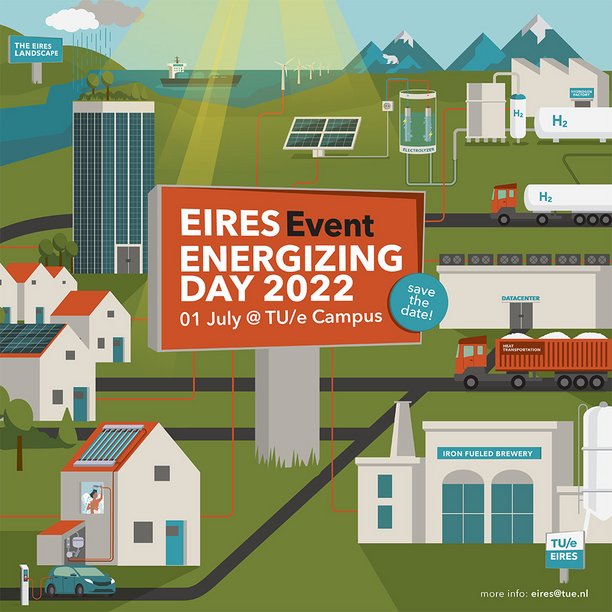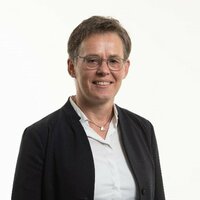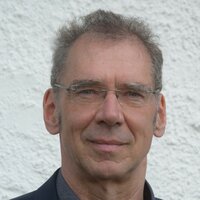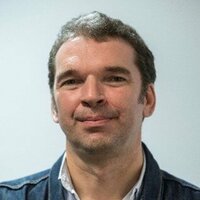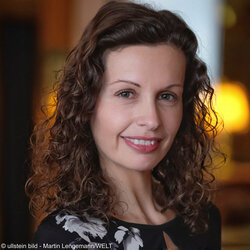ABOUT OUR SPEAKERS
< KERSTIN ECKERT >
- Institute of Process Engineering and Environmental Technology - TU Dresden
- Institute of Fluid Dynamics - Helmholtz Center Dresden-Rossendorf
Topic
From resource technologies to water electrolysis: flow on particle-laden air bubbles and oscillating hydrogen bubbles
Intro to the topic
The talk will bridge the gap between the resource technologies for important metallic raw materials and their application in water electrolysis. After a short introduction into the technology, the focus is on the fascinating multiphase flows in flotation reactors and electrolysers. These are discussed in more detail by means of concrete examples, for which the flow on the surface of particle-laden bubbles and the convection on oscillating hydrogen bubbles is selected.
Bio
Kerstin Eckert, head of the Chair of Transport Processes at Interfaces, a combined chair of Helmholtz-Zentrum Dresden-Rossendorf and TU Dresden, wants to gain a better understanding of the underlying chemical and physical process of water electrolysis. The ultimate aim of the research is to increase efficiency by developing better techniques. By combing laboratory experiments and theoretical calculations, Eckert for example studies the forces acting on gas bubbles attached to electrodes, and alkaline water electrolysis for green hydrogen production.
Kerstin Eckert studied physics at the TU Dresden. In 1998 she received her doctorate from the Otto von Guericke University Magdeburg on structure formation in non-equilibrium systems. With her work, which ranges from convection under weightlessness to the design of flows in electrochemistry and metallurgy, she achieved her habilitation in 2011 at the Faculty of Mechanical Engineering of the TU Dresden. Prior to her appointment as a full professor and head of the Chair of Transport Processes in 2016, she worked as a group leader at the TU Dresden at the Institutes of Aerospace Engineering and Fluid Mechanics.

< ANDREAS HAUER >
- Bavarian Center for Applied Energy Research - ZAE Bayern
Topic
Thermal Energy – The Sleeping Giant of the Energy Transition Starts Moving
Intro to the topic
What is the actual thermal energy demand? How can this demand be supplied in a CO2-free way? What are the relevant technologies to achieve this? In his lecture, Andreas Hauer, Chair of the Board at the Bavarian Center for Applied Energy Research, will address these questions and illustrate them by examples from the ZAE Bayern R&D activities.
Bio
Dr. Andreas Hauer studied Physics at the Ludwig-Maximilians-University in Munich, Germany. He made his PhD at the technical University in Berlin. Now he is the Chair of the Board at the Bavarian Center for Applied Energy Research, ZAE Bayern, with about 100 scientists. There he is responsible for all national and international research and development projects focussed on thermal and electrical energy storage, thermal driven heat pumps / chillers for industrial and building applications. Dr. Hauer is an international known expert on energy storage in general and specialized on thermal energy storage. For 7 years he was the secretary of the Executive Committee of the Energy Storage Programme within the International Energy Agency, IEA. At the moment he is leading working groups on material development for thermal energy storage and on “Flexible Sector Coupling by the Implementation of Energy Storage” within the technology network of the IEA and he is member of the Executive committee. He is member of the Board of Directors of the International Solar Energy Society, ISES. On the national level, he is member of the Board of Directors of the 2012 established Bundesverband Energiespeichersysteme (BVES), German Energy Storage Systems Association. In this position, he is responsible for R&D activities within the association. He is Editor in Chief for the Wiley publication “Advances in Energy Storage”, which was published in April 2022.

< ANDRÉ FAAIJ >
- Director of Science TNO Energy Transition - TNO
- Distinguished professor Energy System Analysis - Utrecht University and University of Groningen
Topic
A system view for an ‘optimal‘ energy transition
Intro to the topic
The presentation will go into the opportunities that the energy transition offers, not in the least in economic terms, and how this process can come and stay on track. Understanding matters from a system perspective, combined with insights on impacts in the broadest sense, innovation science and other relevant disciplines can help to obtain the better outcomes on shorter and longer term.
Bio
André Faaij studied Chemistry and Environmental Sciences and earned his PhD at Utrecht University. He worked as Professor and Scientific Director of the Copernicus Institute until 2014, when he was appointed as Distinguished Professor of Energy System Analysis and as Scientific Director of the New Energy Coalition at the University of Groningen. In 2018, Faaij was appointed as Scientific Director of TNO Energy Transition. In 2021, he was also appointed Professor of Energy System Analysis at Utrecht University. The chair was created by TNO and embedded in the Copernicus Institute for Sustainable Development’s Energy & Resources section at the Faculty of Geosciences.
Personal Pages

< BEATRIZ ROLDAN CUENYA >
Prof.dr. Beatriz Roldán Cuenya
- Fritz Haber Institute of the Max Planck Society, Department of Interface Science, Berlin
Topic
Dynamic Catalysts in Energy Conversion
Intro to the topic
Climate change concerns have spurred a growing interest in developing environmentally friendly technologies for energy generation (i.e. green H2 from water splitting) and to re-utilize CO2 in thermal catalysis applications where it is reacted with green H2 to produce methanol and high-order hydrocarbons. Moreover, the electrochemical reduction of CO2 (CO2RR) into value-added chemicals and fuels offers an additional possibility to store renewable energy into chemical bonds. It is therefore of particular interest to develop efficient, selective and durable (electro)-catalysts that can operate under mild reaction conditions (lower pressures and temperatures, lower overpotentials). Nonetheless, in order to tailor the chemical reactivity of nanocatalysts, fundamental understanding of their structure and surface composition under reaction conditions must be obtained. It should be kept in mind that even morphologically and chemically well-defined pre-catalysts will be susceptible to drastic modifications under operando conditions, especially when the reaction conditions themselves change dynamically.
This talk will provide new insights into the electrocatalytic reduction of CO2 as well as the oxygen evolution reaction (OER) using model pre-catalysts ranging from well-ordered single crystal surfaces to nanoparticles. Some of the aspects that will be discussed include: (i) the design of size- and shape-controlled catalytically active nanoparticle pre-catalysts (Cu2O cubes, ZnO@Cu2O cubic NPs, CoOx NPs), (ii) the understanding of the active state formation and the correlation between the dynamically evolving structure and composition of the (electro-)catalysts under operando reaction conditions and their activity and selectivity.
These results are expected to open up new routes for the reutilization of CO2 through its direct conversion into industrially valuable chemicals and fuels such as ethylene, and ethanol and the generation of green H2 through water splitting.
Bio
Prof. Dr. Beatriz Roldan Cuenya is currently the director of the Interface Science Department at the FHI in Berlin (Germany). She began her academic career by completing her MSc in Physics in Spain in 1998 and a PhD in Physics in Germany in 2001. Her postdoctoral research took her to the Department of Chemical Engineering at the University of California Santa Barbara (USA). In 2004 she joined the Department of Physics at the University of Central Florida (UCF) as Assistant Professor becoming a full professor in 2012. In 2013, Beatriz Roldan Cuenya became a chair professor of Solid State Physics at Ruhr-University Bochum (Germany). She then moved to the FHI in 2017.
Prof. Dr. Beatriz Roldan Cuenya is the author of more than 170 peer-reviewed publications and 4 book chapters. She is Associate editor of ACS Catalysis and serves in the editorial board of the Journal of Catalysis and the Chemical Reviews journal, and in the Advisory Committee of the Office of Basic Energy Sciences of the US Department of Energy.

